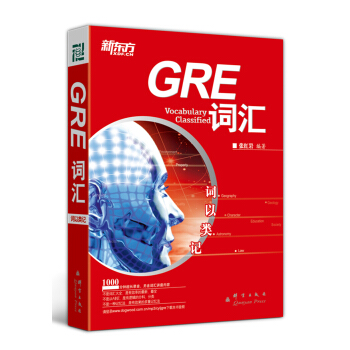

具体描述
编辑推荐
《新航道 9分达人雅思阅读真题还原及解析3》优势及卖点:
2014年-2006年6套新阅读真题
与新题库原文一字不差!
与雅思真题题目一模一样!!
与官方标准答案完全一致!!!
新航道9分达人雅思系列其他精彩阅读:
点击进入
内容简介
《新航道 9分达人雅思阅读真题还原及解析3》共分为三大部分:
第一部分包括新6套雅思阅读真题,每套题共有三篇阅读文章;考生应对所有文章精读细读,达到完全理解的水平,因为每篇文章都有可能在考试中再次出现。
第二部分包括词汇详解、题目详解和参考译文三个版块的内容。词汇详解部分为文章及题目中出现的词汇提供了词性、准确的释义和其他拓展信息,既能帮助考生增加对真题的理解,又能扩充考生的词汇量。题目详解部分则对本书收录的每套题目进行了详细解析,不仅帮助考生彻底弄懂每套试题,同时也教给考生相应的解题方法和技巧。参考译文中的翻译准确流畅,考生对英语原文若有任何不理解之处,可利用参考译文帮助理解。
第三部分为6套雅思阅读真题的参考答案,可供考生进行自我检测。
作者简介
王毅,原北京新航道学校雅思阅读与口语主讲,原新航道英语测试研究中心主任,雅思高分全能班的开创者,美国博代尼大学硕士,中国大陆地区迄今为止仅有的雅思总分满分得主。自2002年以来一直活跃在雅思考试培训第一线,其倡导的PAVE英语教学法、雅思阅读六点论、雅思口语“万径归一”等多种培训方法为众多雅思考生所推崇。
辜驰,原厦门新航道学校校长,雅思阅读、写作主讲,新托福写作主讲。厦门大学硕士,美国北卡罗来纳大学访问学者。监控雅思、托福考题题库十年专家,2000年开创厦门较早的雅思培训班,雅思8.5分得主,TOEFL、GRE考试几乎满分。长期从事出国留学考试、英文写作教学研究。
内页插图
目录
Test1
Test2
Test3
Test4
Test5
Test6
真题解析
AnswerKeys
精彩书摘
READING PASSAGE 1
You should spend about 20 minutes on Questions 1-13, which are based onReading Passage 1 below.
Classifying Societies
Although humans have established many types of societies throughout history, sociologists and anthropologists tend to classify different societies according to the degree to which different groups within a society have unequal access to advantages such as resources, prestige or power, and usually refer to four basic types of societies. From least to most socially complex they are clans, tribes, chiefdoms and states.
Clan
These are small-scale societies of hunters and gatherers, generally of fewer than 100 people, who move seasonally to exploit wild (undomesticated) food resources. Most surviving hunter-gatherer groups are of this kind, such as the Hadza of Tanzania or the San of southern Africa. Clan members are generally kinsfolk, related by descent or marriage. Clans lack formal leaders, so there are no marked economic differences or disparities in status among their members.
Because clans are composed of mobile groups of hunter-gatherers, their sites consist mainly of seasonally occupied camps, and other smaller and more specialised sites. Among the latter are kill or butchery sites—locations where large mammals are killed and sometimes butchered—and work sites, where tools are made or other specific activities carried out. The base camp of such a group may give evidence of rather insubstantial dwellings or temporary shelters, along with the debris of residential occupation.
Tribe
These are generally larger than mobile hunter-gatherer groups, but rarely number more than a few thousand, and their diet or subsistence is based largely on cultivated plants and domesticated animals. Typically, they are settled farmers, but they may be nomadic with a very different, mobile economy based on the intensive exploitation of livestock. These are generally multi-community societies, with the individual communities integrated into the larger society through kinship ties. Although some tribes have officials and even a “capital” or seat of government, such officials lack the economic base necessary for effective use of power.
The typical settlement pattern for tribes is one of settled agricultural homesteads or villages. Characteristically, no one settlement dominates any of the others in the region. Instead, the archaeologist finds evidence for isolated, permanently occupied houses or for permanent villages. Such villages may be made up of a collection of free-standing houses, like those of the first farms of the Danube valley in Europe. Or they may be clusters of buildings grouped together, for example, the pueblos of the American Southwest, and the early farming village or small town of ?atalh?yük in modern Turkey.
Chiefdom
These operate on the principle of ranking—differences in social status between people. Different lineages (a lineage is a group claiming descent from a common ancestor) are graded on a scale of prestige, and the senior lineage, and hence the society as a whole, is governed by a chief. Prestige and rank are determined by how closely related one is to the chief, and there is no true stratification into classes. The role of the chief is crucial.
Often, there is local specialisation in craft products, and surpluses of these and of foodstuffs are periodically paid as obligation to the chief. He uses these to maintain his retainers, and may use them for redistribution to his subjects. The chiefdom generally has a center of power, often with temples, residences of the chief and his retainers, and craft specialists. Chiefdoms vary greatly in size, but the range is generally between about 5000 and 20,000 persons.
Early State
These preserve many of the features of chiefdoms, but the ruler (perhaps a king or sometimes a queen) has explicit authority to establish laws and also to enforce them by the use of a standing army. Society no longer depends totally upon kin relationships: it is now stratified into different classes. Agricultural workers and the poorer urban dwellers form the lowest classes, with the craft specialists above, and the priests and kinsfolk of the ruler higher still. The functions of the ruler are often separated from those of the priest: palace is distinguished from temple. The society is viewed as a territory owned by the ruling lineage and populated by tenants who have an obligation to pay taxes. The central capital houses a bureaucratic administration of officials; one of their principal purposes is to collect revenue (often in the form of taxes and tolls) and distribute it to government, army and craft specialists. Many early states developed complex redistribution systems to support these essential services.
This rather simple social typology, set out by Elman Service and elaborated by William Sanders and Joseph Marino, can be criticised, and it should not be used unthinkingly. Nevertheless, if we are seeking to talk about early societies, we must use words and hence concepts to do so. Service’s categories provide a good framework to help organise our thoughts.
Questions 1-7
Do the following statements agree with the information given in Reading Passage 1?
In boxes 1-7 on your answer sheet, write
TRUE if the statement agrees with the information
FALSE if the statement contradicts the information
NOT GIVEN if there is no information on this
1 There’s little economic difference between members of a clan.
2 The farmers of a tribe grow a wide range of plants.
3 One settlement is more important than any other settlements in a tribe.
4 A member’s status in a chiefdom is determined by how much land he owns.
5 There are people who craft goods in chiefdoms.
6 The king keeps the order of a state by using an army.
7 Bureaucratic officers receive higher salaries than other members.
Questions 8-13
Answer the questions below.
Choose NO MORE THAN TWO WORDS from the passage for each answer.
Write your answers in boxes 8-13 on your answer sheet.
8 What are made at the clan work sites?
9 What is the other way of life for tribes besides settled farming?
10 How are ?atalh?yük’s housing units arranged?
11 What does a chief give to his subjects as rewards besides crafted goods?
12 What is the largest possible population of a chiefdom?
13 Which group of people is at the bottom of an early state but higher than the farmers?
……
前言/序言
《9分达人系列》的出版绝非偶然。现今市面上不乏雅思阅读经典系列教材,其种类繁多,且均面临着同一个问题,即书中所收录的题目大多已过时,多数已被剑桥雅思考试委员会弃之不用,在今后的考试中也基本上不会再出现,因而这些图书远远无法满足广大考生对雅思考试最前沿信息的需求。基于上述情况,我们在对最新雅思真题精心研究和反复推敲后,结合自身经验,提笔创作了第一本《9分达人雅思阅读真题还原》。该书出版后不久便获得了广大考生的认可。不过,由于缺乏解析,该书没能为广大考生进一步解惑。众多读者在使用该教材时,纵使知道自己的答案有误,却也只知其然,而不知其所以然。因此,我们在考生和出版方的提议下为该书续写了一本解析,以满足考生对参考材料的需求,这就是现在为广大雅思考生所熟知的《9分达人雅思阅读真题还原及解析》。真题与解析的完美结合更加贴合了雅思考生的需求,并受到广大考生读者的一致好评和热情推荐。2012年夏,《9分达人雅思阅读真题还原及解析2》也经过辛勤创作与广大读者正式见面,并受到了“烤鸭”们的热烈追捧。
与时俱进、推陈出新是图书行业发展的必然要求,《9分达人系列》也理所当然地顺应了这一趋势。跟不上雅思考试的时代步伐,解决不了广大考生的最新难题,就无法真正实现服务于读者、服务于考生的终极目标和承诺。为此,我们投入了大量精力,细心筛选经典试题并加以还原、精心编著词汇和题目详解,并配以参考译文,最终创作出了迄今最新一代的《9分达人雅思阅读真题还原及解析3》。本书经过多番努力,现已正式出版,其中收录了最新的6套雅思阅读真题。《9分达人雅思阅读真题还原及解析3》不仅是我们的心血之作,更是考生进行考前冲刺复习、寻找考场体验、保持做题手感、训练解题方法和技巧、扩充核心阅读词汇、押中现场考题的宝典。
《9分达人雅思阅读真题还原及解析3》有以下几大特色:
一、最新雅思阅读真题完整收录。
为了让考生在考前调整好心态,又不失适当的训练,本书收录了2014年-2006年6套完整的最新阅读真题。这6套阅读真题与《9分达人雅思阅读真题还原及解析》和《9分达人雅思阅读真题还原及解析2》所收录的真题均不重合。考生可根据自己的实际情况选做其中的题目,然后再对照解析部分查漏补缺,巩固已有的知识和经验,加深对雅思考试考点的印象和理解。如此,考生既不会有太大的压力,又能持续保持考试状态和解题手感,让自己在第一时间把握主动权。
二、增加“词汇详解”版块。
本书在已有的“真题集”、“题目详解”和“参考译文”三个版块的基础上,又增添了“词汇详解”这一版块,为考生的词汇积累提供了极为丰富的素材。“词汇详解”中的词汇均来自对应阅读文章及题目,并按照词汇在原文及题目中的先后顺序进行排列,包含词性、释义、词源、词根词缀、“小故事”和其他拓展信息等。内容丰富多彩,读起来非常有趣,并不像单纯的词汇书那样枯燥乏味。如此一来,既有助于考生加深对文章的理解,又能够帮助考生扩充词汇量。
三、题目详解令人耳目一新;经验与技巧总结助考生事半功倍;参考译文让理解更加深刻。
首先,我们结合题目信息与原文信息,对每一道阅读题目进行了详细的讲解。内容清晰明了,细致到位,通俗易懂,让人豁然开朗。其次,解析中包含了经过反复的思量、推敲和总结的多年雅思考试经验,汇聚了最有效的解题思路、方法和技巧。相信考生在掌握好这些技巧与经验后会对考试的题型有一个更明确的概念,从而能够更好地应对现场考试。最后,我们还为每一篇阅读文章提供了精确的参考译文,以帮助考生加深理解。
四、押题宝典。
在考场中,幸运的考生或许会惊喜地发现:眼前的雅思阅读题竟然与《9分达人雅思阅读真题还原
及解析3》中的题目一模一样!若真是如此,那么请“烤鸭”们先按捺住内心的激动,细心地把题答完吧!
为广大考生提供优质的图书和服务是我们最真诚的愿望,考生和读者对我们的支持、鼓励和意见也将进一步促进和推动我们的进步与提高。为了时刻跟进考生的需求和对图书的反映,我们成立了新航道雅思读者互动QQ群(群号见封底)、新航道9分达人微博及9分达人微信(“9分达人”二维码见封面),诚邀广大雅思考生和英语爱好者的加盟。如果您想提高自己,那就不要犹豫了,加入我们的大家庭,与志同道合者一起交流畅谈吧!如果您对我们有任何意见或建议,也请不要忘记告诉我们哦!我们会悉心对待每一位读者的意见和提议,力求不断进步,为广大考生和读者编织美好的明天!
最后,我们衷心祝愿考生取得优异的成绩!
用户评价
这本《9分达人雅思阅读真题还原及解析3》简直是为我这种備考雅思的考生量身定做的!说实话,刚开始接触雅思阅读的时候,我常常感到力不从心,那些长篇大论的英文文章,加上各种刁钻的题型,常常让我无从下手。尤其是一些原文稍有改动就找不到答案,或者明明看懂了意思却选错选项的情况,真的太打击自信心了。但是,当我拿到这本书后,我才发现之前遇到的困境都有了解答。它最大的亮点在于,不只是简单地罗列真题,而是极其细致地还原了考试的原貌,甚至连文章的语境和一些容易混淆的细节都做了最大程度的保留。这一点对于我这种想要熟悉真实考试氛围的考生来说,简直是太重要了。很多时候,我们备考可能只练了题,但却没有真正体会到原文的“味道”,这本书恰恰弥补了这一点。我特别喜欢它对题目来源的考证,这让我觉得这本书的权威性非常高,不仅仅是模拟,而是真正来自考场的“声音”。而且,它提供的解析,不是那种泛泛而谈的“因为所以”,而是层层深入,把每一道题目的考点、难点,以及出题人的“小心思”都剖析得清清楚楚。读完之后,你会恍然大悟,原来这道题是这样考的,原来那个词在这里有这个用法,这种醍醐灌顶的感觉,是在其他资料上很少能获得的。我感觉自己的阅读逻辑和解题思路都有了质的提升,不再是盲目做题,而是开始思考题目背后隐藏的规律。
评分说实话,在市面上看了不少雅思阅读的辅导书,很多都流于表面,或者解析过于简单,看完之后还是云里雾里。但这本书,简直就是一股清流!它提供的真题还原,给我一种身临其境的感觉,仿佛我真的坐在考场里,面对着真实的雅思阅读文章。那些文章的长度、难度、题材,都和我在官网和模拟考试中遇到的非常接近。更重要的是,它提供的解析,真的是我见过最细致、最有深度的。它不仅仅告诉你正确答案是什么,更重要的是,它会告诉你为什么这个选项是对的,为什么其他的选项是错的。它会深入到词汇的辨析,句式的理解,甚至段落的主旨把握。我尤其喜欢它对于一些“陷阱”选项的分析,很多时候,那些错误的选项都和正确答案非常相似,一不小心就会被误导。这本书通过详细的对比和讲解,让我能够清晰地识别出这些陷阱,避免重复犯错。而且,它在解析中还会穿插一些相关的阅读技巧和方法,比如如何快速定位信息,如何理解长难句,如何进行同义替换的判断等等。这些技巧并不是空洞的理论,而是结合具体的题目进行讲解,非常具有操作性。我感觉通过这本书,我的阅读能力和解题能力得到了全方位的提升,不再是靠运气猜答案,而是能够有理有据地选择正确的选项。
评分这本书的价值,在于它能够让我从“量”的堆积走向“质”的飞跃。我之前也做过不少雅思阅读的练习,但总感觉效果不尽如人意,有时候做对了,但并不知道为什么对,有时候做错了,也不知道错在哪里。拿到这本书后,我才发现,之前我的备考方式存在很多盲区。《9分达人雅思阅读真题还原及解析3》在真题还原方面,真的做到了极致,让我能够充分地接触到真实的考试场景和难度。但是,真正让我惊艳的是它的解析。它不是那种流于表面的“告诉你答案”,而是深入到文章的每一个细节,每一个考点。它会细致地分析每一个选项,包括正确选项和错误选项,解释它们与原文的对应关系,以及为什么其他选项会被排除。这种“解剖式”的解析,让我能够真正地理解每一个题目背后的逻辑和考点。我特别喜欢它对于长难句的拆解和分析,让我能够更清晰地理解句子的意思,从而更准确地把握文章的主旨。而且,它在解析中还巧妙地融入了一些阅读技巧和策略,比如如何有效利用扫描和略读,如何识别句间关系,如何通过上下文猜测词义等等。这些技巧并不是生搬硬套,而是结合具体的题目进行讲解,非常具有实操性。我现在感觉自己做阅读题的效率和准确率都有了显著的提升,不再是靠运气,而是有方法、有思路。
评分我一直觉得,备考雅思阅读,光靠模拟题是远远不够的,关键是要吃透真题。这本书,就是我寻觅已久的“真题宝典”。它在真题还原方面做得非常到位,让我能够感受到最真实、最原汁原味的考试内容。我最看重的是它的解析部分,简直是“神来之笔”。不同于市面上很多解析只是简单地给出答案,这本书的解析是层层深入,剥茧抽丝。它不仅仅会告诉你为什么这个答案是对的,更重要的是,它会从原文的词汇、语法、句式结构,甚至是出题人的出题思路来分析。我印象特别深刻的是,有一次我做错了一道题,看了解析才知道,原来是文章中一个看似不起眼的连词,却承载了重要的逻辑关系。这本书就是通过这种“微观”的分析,让我能够发现之前自己忽略的细节,从而提升阅读的精准度。而且,它在解析中还穿插了一些非常实用的备考建议,比如如何进行有效的错题整理,如何建立自己的词汇和表达库,这些都让我觉得这本书不仅仅是一本练习册,更像是一位经验丰富的老师,全程指导我的学习。我现在做题的信心越来越足,也越来越能理解出题人的“意图”。
评分这本书真的让我对雅思阅读的理解进入了一个新的层次。我之前一直觉得阅读题就是要靠大量地背单词和做题,但这本书让我明白,这远远不够。它最大的价值在于,它不仅仅是提供了一堆题目,更重要的是,它为我打开了一扇理解“为什么”的门。通过对真题的细致还原,我能够更直观地感受到考试的真实难度和出题的风格。那些解析,简直是为我量身定做的“保姆式”服务。每一次看到一个错误选项,它都会详细地解释这个选项的错误之处,可能是信息不符,可能是与文章意思相悖,也可能是偷换概念。这种“刨根问底”的解析方式,让我能够真正地吸取教训,而不是每次错误之后都一知半解。我记得有一道题,我当时花了很长时间才选出来,后来看了解析,才发现原来是因为我忽略了文章中的一个关键的限定词。这本书就是通过这种方式,帮助我打磨细节,提升对文章的精准理解能力。而且,它在解析中还穿插了一些关于语篇分析的讲解,教我如何去识别文章的结构,如何把握段落之间的逻辑关系,这对于我理解复杂的文章非常有帮助。现在,我感觉自己做阅读题不再是“摸着石头过河”,而是有明确的思路和方法,能够更加自信地去应对考试。
评分guuijhvfdtuhhh辉煌国防费验课都听过很多事情不需要的时候才肯睡觉吧?我在你身边的人也都可以
评分好好哈好啊好啊好啊还啊哈好好好好 很好用啊 快要考雅思了 祝我考9吧
评分陈既然你腐男腐女人家才别发你从哪让你姐夫男的女的不发就不发金腐男腐女你放假疯女人几号回家白发皇妃背景灯今日加肥加大
评分很好很好很好
评分《珍本医书集成》共收古今医书九十种,具有十分重要的学术与文献价值。裘先生将九十种医籍分隶十二类,即医经、本草、脉学、伤寒、通治、内科、外科、妇科、儿科、方书、医案、杂著。这种分类既符合中医的学术特点,又便于后人对中医理法方药的学习与掌握。在每一类书的书目选择上,先生不仅”重珍本、孤本、稿本等珍贵文献的保存,更加注重其学术特点与实用价值。正是由于本书所选的九十部书不是随意的堆砌,而是先生以其精湛的学术造诣,独具慧眼的匠心,本着宏扬中医学术、提高临床水平的原则,精心编选而成,故使其具有极高的学术价值与实用价值,而为世人所称道。
评分吾消费京东商城数年,深知各产品琳琅满目。然,唯此宝物与众皆不同,为出淤泥之清莲。使吾为之动容,心驰神往,以至茶饭不思,寝食难安,辗转反侧无法忘怀。于是乎紧衣缩食,凑齐银两,倾吾之所有而能买。东哥之热心、快递员之殷切,无不让人感激涕零,可谓迅雷不及掩耳盗铃儿响叮当仁不让世界充满爱。待打开包裹之时,顿时金光四射,屋内升起七彩祥云,处处皆是祥和之气。吾惊讶之余甚是欣喜若狂,呜呼哀哉!此宝乃是天上物,人间又得几回求!遂沐浴更衣,焚香祷告后与人共赏此宝。人皆赞叹不已,故生此宝物款型及做工,超高性价比之慨,且赞吾独具慧眼与时尚品位。产品介绍果然句句实言,毫无夸大欺瞒之嫌。实乃大家之风范,忠义之商贾。
评分书不错哦,推荐同学来买
评分攒人品,519考7777
评分商品收到及时,一共买一套,期望真能助一臂之力。
相关图书
本站所有内容均为互联网搜索引擎提供的公开搜索信息,本站不存储任何数据与内容,任何内容与数据均与本站无关,如有需要请联系相关搜索引擎包括但不限于百度,google,bing,sogou 等
© 2025 book.qciss.net All Rights Reserved. 图书大百科 版权所有







![剑桥商务英语应试辅导用书:BEC听力必备手册(中级)(附MP3光盘1张) [Success with Bec Vantage] pdf epub mobi 电子书 下载](https://pic.qciss.net/10974126/rBEDilAOWucIAAAAAACroL11g1wAAFXSAPAVAIAAKu4124.jpg)




![新东方·剑桥雅思考试全真试题集8(附光盘) [Cambridge English IELTS 8] pdf epub mobi 电子书 下载](https://pic.qciss.net/10583810/58097204N5eb90c75.jpg)
![新东方·剑桥雅思考试全真试题集7(附光盘) [Cambridge English IELTS WITH ANSWERS 7] pdf epub mobi 电子书 下载](https://pic.qciss.net/10011407/541a4e37N5c040642.jpg)
![新东方:剑桥雅思考试全真试题集9(附光盘) [Cambridge English IELTS 9] pdf epub mobi 电子书 下载](https://pic.qciss.net/11181615/547566baNeac6ec98.jpg)





![GRE巴朗词表 [Essential Words for the Gre] pdf epub mobi 电子书 下载](https://pic.qciss.net/10621350/4ef2e6e7-b5eb-4c1b-80a1-621f662507b0.jpg)